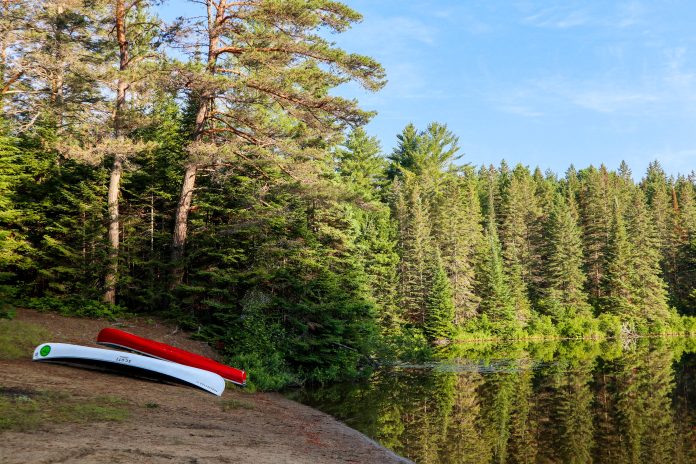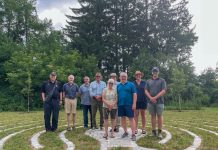As we seek ways to better connect people to the state of their water resources, and build trust in the related science, the Federation of Ontario Cottagers’ Associations (FOCA) is pleased to announce the publication of a paper in the journal: Environmental Sociology, titled: Exploring how citizen science might counter anti-science attitudes and build public trust in science.
The paper was written by FOCA and our partners at the Toronto Metropolitan University and Fairfield University (Connecticut), and is based on interviews with participants in the Lake Partner Program (LPP), a province-wide volunteer-driven water quality monitoring program. The LPP is delivered through a longstanding partnership between FOCA and the Ontario Ministry of the Environment, Conservation and Parks (MECP), with annual water sampling undertaken by citizen science volunteers (FOCA’s ‘lake stewards’) at over 800 sites across Ontario, and sample analysis completed by MECP scientists.
The results are available publicly and provide an important spatial and temporal dataset; most recently, the data have been incorporated into the Great Lakes DataStream open access hub for sharing water data.
The current study found that having data collected by known members of a broader lakefront property-owning community can help to increase the community’s trust in science. “In this day and age, the role of these dedicated citizen science volunteers has never been more important,” said FOCA’s Executive Director Terry Rees.
For many lake stewards, volunteering with the LPP is one part of a broader strategy to promote public awareness about water quality. The LPP data is used to help lake stewards communicate about the state of the lake, as well as to inform other members of the Lake Associations about various strategies to help maintain or improve water quality. Having long-term data about phosphorus, turbidity, and calcium can provide lake stewards with a launching point for discussions about the importance of septic system maintenance, or of cultivating a natural shoreline.
In some cases, lake stewards are also involved in other water quality monitoring efforts alongside the LPP surveys, including invasive species monitoring, shoreline vegetation surveys, or studies of other bioindicators, including fish, benthic macroinvertebrates, amphibians or birds.
The LPP methods are relatively simple and straight-forward to learn but can help volunteers deepen their understanding of the factors and conditions that relate to water quality. Some lake stewards explained that the Do-It-Yourself “community science” approach to water quality monitoring can help to raise awareness about water quality issues.
While the data collection methods have been created by professional scientists, with an institutional structure in place to provide materials, data analysis, and other forms of support, LPP volunteers are afforded a certain degree of independence and agency. Through their Lake Associations, lake stewards have access to forums through which they can communicate the data using language and strategies that are suited to their local contexts, and which can help inform decision-making about strategies to conserve or improve water quality.
This combination of oversight and involvement by professional scientists with volunteers who work independently is a strength of the LPP model. While the LPP is an example of a “community science” program that prioritizes the collection of high-quality phosphorus, turbidity and calcium data, it still yields some additional benefits related to public engagement and understanding of science.
At a time where the role of science in society and policy-making has been brought to the forefront of public conversation, programs like the LPP provide an opportunity to bring science closer to home, and provide opportunities for direct-hands on experience with science and data, which may in turn help to foster relations of trust between communities and professional scientists.
Visit FOCA’s website to learn more.








